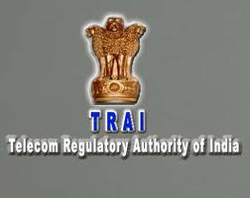Mise à jour : 28 août 2012 (Rédaction initiale : 24 août 2012 )
Sur le vif

Mise à jour : 29 mai 2012 (Rédaction initiale : 15 mai 2012 )
Sur le vif

Mise à jour : 14 mai 2012 (Rédaction initiale : 6 mai 2012 )
Sur le vif

Mise à jour : 9 mai 2012 (Rédaction initiale : 3 mai 2012 )
Sur le vif

Mise à jour : 19 décembre 2011 (Rédaction initiale : 8 septembre 2011 )
Analyses Sectorielles

Translated Summaries
ENGLISH
In 2010, the Autorité française de régulation des jeux en ligne (ARJEL — French Online gambling regulatory authority) decided that operators should have required all players to open an account even before they had been approved by the ARJEL to provide online gambling services, that all players should have been required to accept the general conditions of sale before their first bet, and that operators should have saved this information in a real-time archival format.
Account - Appeal - Appeal right - Data - Food - General power - Incoherence - Independence - Information - Legal mandate - Licence - Money laundering - Procedure - Real-time storage -Registration - Regulator - Sanction commission - Surveillance *
* In The Journal of Regulation, these keywords are done by the Editor and not by the Author.
FRENCH
En 2010, l’autorité française de régulation des jeux en ligne (ARJEL) estime qu’un opérateur aurait du exigé de tous les joueurs qu’ils ouvrent un compte avant son propre agrément par le régulateur, et que les joueurs acceptent les conditions générales de vente avant leur première mise, ces informations devant être insérées par l’opérateur sur le support d’archivage en temps réel. Ainsi, l’antériorité est acquise, cette certitude évitant toute manipulant et l’opérateur pouvant ainsi surveiller, comme le prévoit la loi, les joueurs, notamment au titre de la lutte contre la fraude et le blanchiment d’argent.
* In The Journal of Regulation, these keywords are done by the Editor and not by the Author.
Informe temático (el Juego): La Comisión Disciplinaria del ARJEL decidió que no era competente para sancionar a un operador aunque el Presidente del ARJEL las haya pedido. El Presidente del ARJEL ha apelado la decisión
En 2010, la Autorité française de régulation des jeux en ligne (ARJEL – el Regulador francés del juego en la red) decidió que todos los operadores deben requerir que todos los jugadores abran una cuenta aun antes de que hayan sido aprobados por ARJEL para proveer servicios de juego en la red, que todos los jugadores deben haber aceptado las condiciones generales antes de su primera apuesta, y que los operadores debieran haber guardado esta información en formatos actualizados.
.....................
Other translations forthcoming.
Mise à jour : 13 septembre 2011 (Rédaction initiale : 7 septembre 2011 )
Contributions

